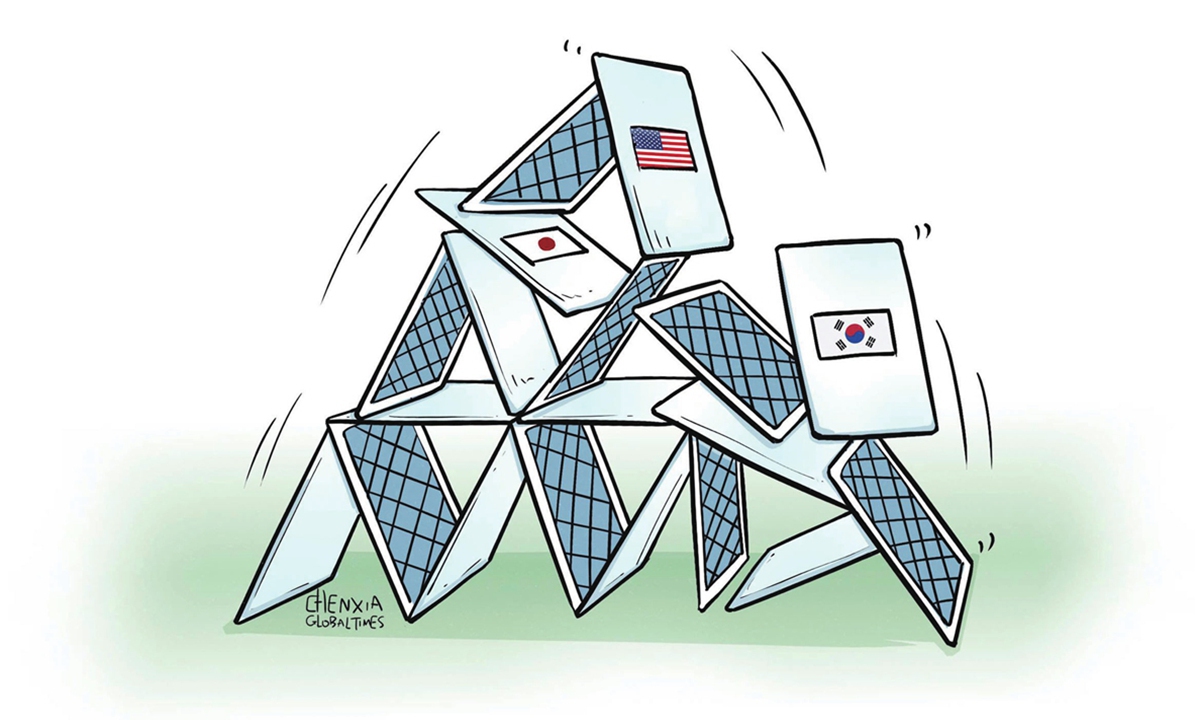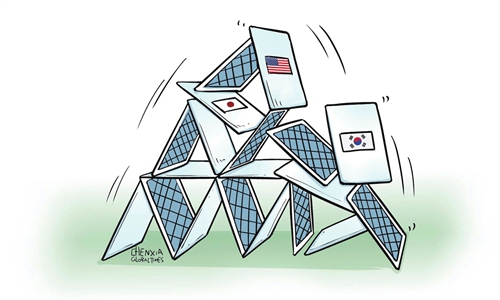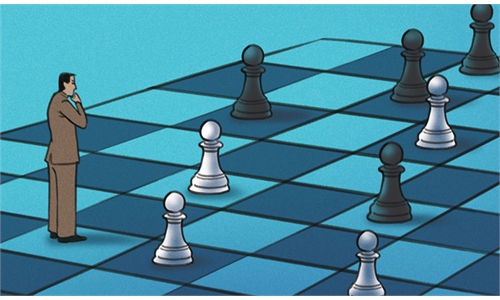
Illustration: Chen Xia/GT
Northeast Asia is one of the world's geopolitical hotspots. Japan and South Korea are two key players and the only two developed countries in the region, making their bilateral relationship particularly important. But their ties have often been marked by complexities and bumps. According to South Korea's presidential office, Japanese Prime Minister Fumio Kishida will make a two-day visit to South Korea from Friday and hold summit talks with President Yoon Suk-yeol. The news story has attracted widespread attention.
Japanese Chief Cabinet Secretary Yoshimasa Hayashi stated that the meeting will be an "important occasion" for the two leaders to discuss further cooperation between their governments.
Since Kishida has already announced that he will not be running in the Liberal Democratic Party's leadership election, his tenure as prime minister is entering its final phase. So, why is he visiting South Korea at this time?
The first reason is the influence of the US. Relations with the US are the axis of Japan's foreign policy. In recent years, Japan's strategic significance in US geopolitical strategy has increased due to the factors of great power competition. Japan acts as a pawn in provoking China. Under the Joe Biden administration, the US has leaned toward forming minilateralism groups or alliances to counter China. The "Indo-Pacific Strategy" has become a crucial geopolitical strategy for the US due to this approach, and AUKUS is a product of the same strategic thinking.
For the US, the current top priority is to eliminate any disputes between Japan and South Korea, bolster minilateral alliances, and form a united front against China and Russia. The intention of Kishida's visit to South Korea this time is to help the US achieve its purposes. It should be noted that in the US military alliance system, Japan has a higher status than South Korea, and Kishida is willing to follow the US' arrangement.
Second, the visit could be about Japan's own calculations in confronting China. This year, China-Japan relations have become more tense due to Japan's provocative behaviors. Since South Korea is closer to China geographically, once a confrontational pattern is formed, South Korea may bear greater strategic pressure than Japan. Kishida's move also aims to share the stress with South Korea.
Third, Kishida has his own political motives. During his term, Japan's economy continues to decline, its GDP has been exceeded by Germany. Meanwhile, China has caught up with Japan in the automotive field.
Kishida Cabinet's approval rating continued to decline. In the end, he could only announce his withdrawal from the election, sounding the death knell for his political life. However, as a seasoned politician, Kishida still attempts to leave some political legacy, visiting South Korea could be one.
Despite domestic opposition, Kishida's proactive visit to South Korea as an outgoing prime minister will not harm his political interests. The incoming prime minister will have space to make adjustments to the bilateral relationship if the government is unsatisfied with the results of this visit. More importantly, if both of the above goals can be achieved, it would be a full victory for Kishida. Kishida is only 67 after all, and still has the potential to make a comeback, making this visit to Korea a high-stake gamble for his future political career.
In regard of this visit, South Korean media outlet the Hankyoreh suggest that if Kishida only comes empty-handed to take photos without the minimum sincere gesture to pursue true Japan-Korea friendship, this visit will be meaningless. This reflects the sentiment in South Korea - many Koreans are dissatisfied with the Yoon administration's repeated concessions in diplomacy with Japan.
However, with Kishida stepping down, even if he were really committed to making meaningful progress in ties with South Korea, limited time would hinder any effort, which might be exactly the kind of trick Kishida wants to play.
In today's turbulent world, with ongoing regional conflicts, including the Ukraine crisis, the Palestine-Israel conflicts and the Red Sea crisis, showing no sign of settlement, peace is becoming a luxury. Against this background, any individual who prioritizes personal interests, provokes neighbors and escalates disputes, should be criticized for hindering peace and prosperity of the region and the world.
The author is deputy director of the Center for Northeast Asian Studies, Shanghai University of Political Science and Law. opinion@globaltimes.com.cn



